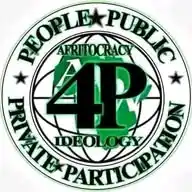
Afritocracy 4P Ideology
February 22, 2025 at 04:48 PM
African Languages: Overview and Importance
African languages are the diverse range of languages spoken across the African continent, home to over 2,000 distinct languages grouped into various language families. These families include Niger-Congo, Afroasiatic, Nilo-Saharan, and Khoisan. Each language group represents a different cultural heritage, ethnic identity, and historical legacy. Some of the widely spoken African languages include Swahili, Yoruba, Zulu, Amharic, Hausa, and Igbo, among many others.
Symbolism of African Languages Among African People
African languages hold immense cultural, social, and symbolic significance. They are not just tools for communication, but also key carriers of history, identity, and heritage. Here are some of the main symbolic roles of African languages:
1. Cultural Identity and Heritage:
Language is an essential part of cultural identity for African communities. It connects individuals to their ancestry and cultural practices, preserving oral traditions, folklore, music, and art.
Through language, African people transmit values, norms, history, and spiritual beliefs from one generation to another. It reinforces group solidarity and belonging.
2. Preservation of Oral Traditions:
Many African societies have rich oral traditions that rely heavily on language. Storytelling, proverbs, riddles, chants, and songs are integral parts of African heritage and are often passed down through the generations in their native languages.
Language helps to preserve historical narratives, such as genealogies, the myths of origin, and lessons from the past, which might otherwise be lost in written records.
3. Spiritual and Religious Significance:
In African spiritual practices, language holds power. Sacred prayers, incantations, and rituals are often conducted in indigenous languages, which are believed to carry spiritual energy.
Language is also used to invoke ancestors and deities, making it a link between the physical and spiritual worlds.
4. Social Cohesion and Communication:
In multilingual societies, language helps create bonds between members of a particular ethnic group. It plays a significant role in reinforcing social relationships, family structures, and community ties.
African languages are often the primary means of communication within families and communities, fostering a sense of unity and shared purpose.
Learn about the Native?
Adekunle Adeleke
D BABA AFRIKA
#nativemade #languageschool